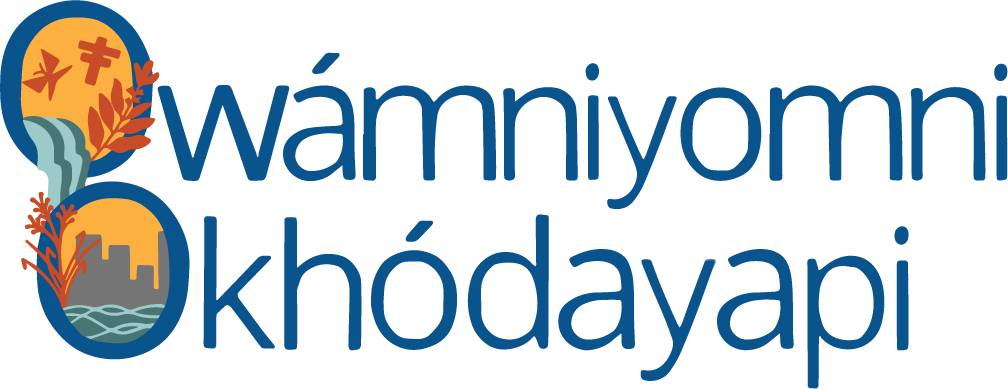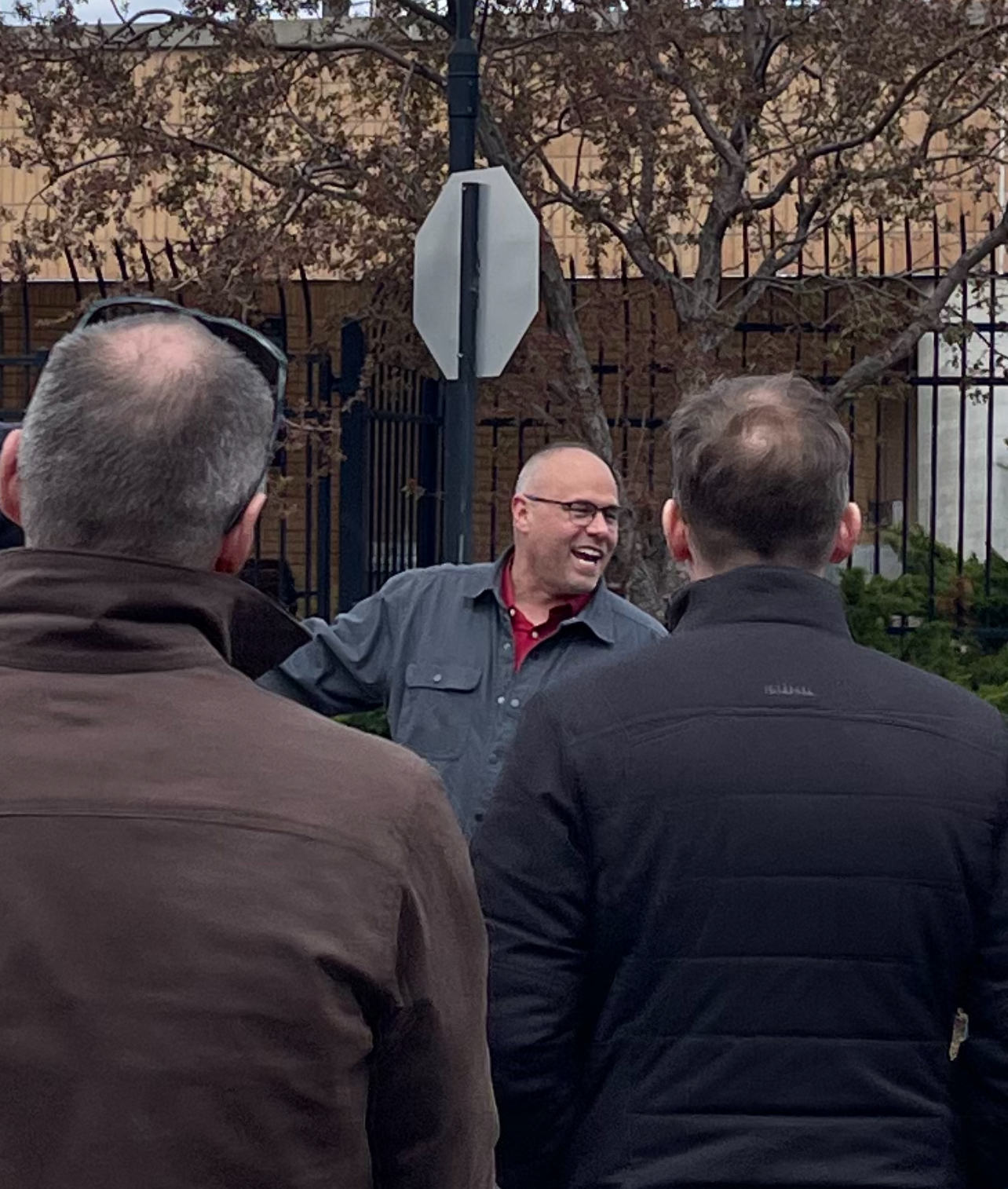By Owámniyomni Okhódayapi, The Alley Newspaper
Owámniyomni Okhódayapi (formerly Friends of the Falls), a project rooted in the revitalization of Dakota culture and restoring connections to the River, proudly welcomes Barry Hand as its newest team member. With a rich background in teaching Dakota language and an impressive portfolio of community development initiatives, Hand brings a wealth of experience to the role of program director. We introduce Hand to the community by delving into his background, his recent contributions at Tinta Wita (Prairie Island), and his early visions for programming at Owámniyomni (St. Anthony Falls).
Barry Hand’s journey is one marked by a deep commitment to language preservation and community development. Hand’s roots growing up in a Lakota language-speaking household laid the foundation for his career. He has taught Dakota language for the past 15 years and, armed with a degree in public policy with a focus on sustainability, has collaborated on program development with institutions like Harding High School and the University of Minnesota. His experiences, from helping to put on the first Dakota Language Bowl in the Twin Cities, to four years at Bdote Learning Center, showcase his dedication to cultural education and experiential learning.
While working for Tinta Wita, Hand spearheaded various programs, including the creation of a winter camp and the building of traditional bark lodges, a feat that hadn’t been accomplished in Minnesota in over 150 years. His philosophy centers around positivity in language acquisition, emphasizing the importance of trying, staying in love with the language, and avoiding harm. Hand’s work getting Dakota language classes at Red Wing High School is notable for its commitment to inclusivity, offering language classes for both heritage (Native) and non-heritage students. This approach has successfully improved relations between the Red Wing and Tinta Wita Communities.
Outside of the professional realm, Hand is engaged in habitat restoration, bird watching, and nutrition advocacy, emphasizing the integration of Dakota culture into daily life.
At Owámniyomni, Hand envisions programming as community-driven. His early ideas involve engaging in dialogue with community heritage folks, honoring the Falls for what it once was and what it still is. Program development will be a collaborative process, integrating the desires of both the community and the River.
For Hand, Owámniyomni Okhódayapi represents a chance to heal the wounds inflicted by manifest destiny and environmental exploitation. He likened it to a cut saying, “When you get a deep cut and heal, there’s still going to be a scar. Your skin is never going to be the same in that spot, but it heals.” Hand views this project as an opportunity to do that healing by restoring and reconnecting with a shared history between heritage and non-heritage communities. He sees it as legacy work that can re-establish Dakota communities in places of historical significance. “When we look at the Twin Cities and the heart of the cities, downtown Minneapolis, we no longer see ourselves there. This is an opportunity for us to re-establish ourselves at this place of power.”
Anticipated programs include the revival of lifeways such as canoe and food culture. There will be an emphasis on environmental stewardship through teaching the harvesting of plant medicines, restoration of the native mussel population, and seasonally focused activities. Hand envisions intergenerational events, creating a network of okhódayapi, or friends. “To me, the okhódayapi (friend) part of Owámniyomni Okhódayapi will be the army of volunteers who become the voice of this place.”
Hand stresses the importance of giving Dakota communities a prominent seat at the table, advocating for ethical and equitable engagement. He also views collaboration with organizations like the National Park Service, Mississippi Park Connection, and Wilderness Inquiry as being crucial for enhancing the impact of Dakota cultural programming along the River.
Barry Hand envisions Owámniyomni Okhódayapi as a catalyst for growth, inspiring new connections and breathing new life into Dakota culture within the state of Minnesota. The project aims not only for preservation, but also for thoughtful expansion, led by the Dakota community.
“As Barry Hand joins our team at Owámniyomni Okhódayapi, his profound passion, extensive experience, and visionary outlook promise a transformative journey towards cultural revitalization and environmental stewardship. With his guidance, I’m confident this project will initiate a ripple effect, helping reshape the narrative of Dakota history and our shared identity,” said Shelley Buck, Owámniyomni Okhódayapi president.
Read the full story at alleynews.org


